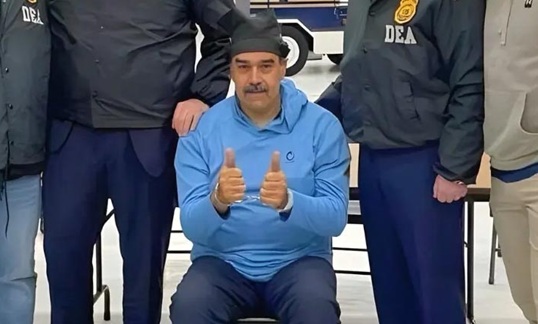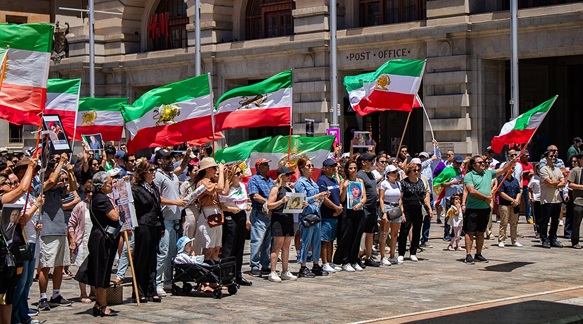Dr. Tawfik Hamid, expert on Islamic radicalism, thinks that Barack Obama has done everything wrong when it comes to Egypt in the past three years.
Is there are a difference between the Muslim Brotherhood and the Jihadi organizations firing rockets into Israel? If you ask Dr. Tawfik Hamid, an ex-Egyptian Jihadist and today an expert on Islamic radicalism, thinks there isn't and that they both need to be fought • Obama, apparently, thinks otherwise. There's no other way to explain how Obama made every possible misstep when it comes to Egypt • A comprehensive interview on the largest and most important Arab country in the Middle East, American Policy in the Region and the Israeli-Palestinian Peace Process
It isn’t often that we come across a scholar who not only depicts accurately the phenomenon of Islamic radicalism in the Middle East and beyond, but actually dedicates himself entirely to combating it on a global scale. But that is exactly the life story of my dear friend Dr. Tawfik Hamid – M.D., psychologist, former extremist and current Islamic thinker and reformer, who presently serves as Senior Fellow and Chair for the Study of Islamic Radicalism at the Potomac Institute for Policy Studies. He spoke with us at length of recent developments in his native Egypt, US foreign policy toward it, his fight against radical Islam and even the Israeli-Palestinian peace process.
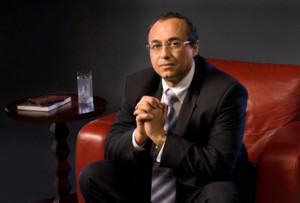
Tawfik, please tell our readers about your life story: your early years in Egypt, your radicalization and de-radicalization.
I was born to a secular Egyptian family, and at age 15 I began to take interest in religion. I was invited to join a radical, illegal Islamist group, Al-Jama'a al-Islamiyya, which I did while I was in medical school. On a few occasions, I met Jama’a member Ayman al-Zawahiri, who became the second and now the first in command of al-Qaeda. I became radicalized and dreamt of fighting in Afghanistan, dying in jihad and going to paradise.
But when the group wanted me to kidnap an Egyptian police officer and bury him alive, it was too much for me and caused the awakening of my human conscience. It was then that I began to spread a message of reformation of Islam, which is my main mission alongside counter-radicalization.
Let’s speak about today’s Egypt. You wrote in one of your recent op-eds that you are optimistic about Egypt’s prospects following the removal from power of President Muhammad Morsi and the Muslim Brotherhood. Could you please explain, taking into account the current campaign against both the Muslim Brotherhood and the Jihadi organizations?
Absolutely. First of all, let me clarify: I wrote that the road would be bumpy, and having an element of optimism doesn’t mean everything will be easy. Ultimately, I see some elements of optimism, such as the recognition that radical Islam is a major threat to the country and its existence, which has never happened before, to this extent. If you follow the social media or official media, you will be surprised at just how many people are speaking out, at all levels, against radical Islam, the Jihadis and Hamas. Unfortunately, anti-Semitism is still a factor, but there is the beginning of a change in the way of thinking against radical Islam.
Secondly, Saudi Arabia, Kuwait and the United Arab Emirates (UAE) are providing investments and funding constituting substantial support to Egypt at this critical stage, which can help the country bridge this (hopefully) transient phase of instability. Furthermore, compared with other countries, the military establishment is still there, it is still the backbone of Egypt. It is difficult dealing with the radicals, but the establishment, the people and the media are against them, so I see this as a new, encouraging paradigm.
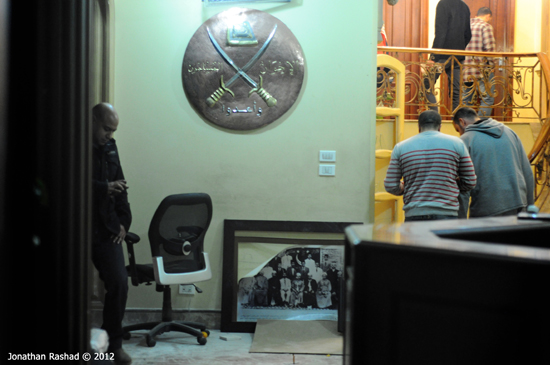
Do you think Egypt is headed into a new period of stability under al-Sisi and the new government? Do you think it will be a version of a more secular, authoritarian regime or do you see this as the beginning of democratization?
I view al-Sisi as an element of stability, as he is the only one who receives the support of most groups and is seen by many Egyptians as the man who can return Egypt to where it was, or take it, hopefully, to a better place. As opposed to many government officials, he seems like an honest man, his hands are clean and even his opponents couldn’t uncover any links to corruption. So, al-Sisi represents hope for many Egyptians who wish for a symbol of power and leadership, and I can see that people will trust him if he becomes president, something which will attract additional investments. For example, a UAE company just pledged 40 billion dollars for a project and is considering investing in the Suez Canal area.
I also believe that al-Sisi’s military intelligence background makes him the best person to deal with the obstacle poised by the radicals. He is under pressure from the West, especially the US, over human rights issues, but when dealing with radical Islamists, respecting fully their human rights can put innocents in harm’s way. When people in the US say that democracy is the best solution to radicalism and terrorism, that’s incorrect – the implementation of democracy in Afghanistan or Iraq did not really stop it. On the contrary, we have seen nothing but more terrorism, the likes of which we did not see even under Saddam. So, I think the world needs to realize that the next stage in Egypt is pivotal for everybody: 70% of Al-Qaida’s top brass was Egyptian, [Muslim Brotherhood founder] Hassan al-Banna was Egyptian, as are many radical leaders, and if Egypt has turned against radical Islam, the whole world should stand with it against them, as I think it is the first step toward peaceful coexistence between the Muslim world and others.
Regarding civil society, it played a critical role in mobilizing the masses and the Army ahead of the June 30th Revolution. What role do you envision it taking under al-Sisi and the government?
Civil society is divided into three groups, with different approaches and strategies than before. A significant portion of civil society that actually started the January 25th Revolution is ideologically opposed to the military, and is currently sustaining heavy criticism from the majority of Egyptians for not actually offering any real solutions. Their influence is waning.
There is another significant part of civil society movements that learned the lesson that sudden democracy syndrome can bring radicals to power and turn Egypt into a Taliban state. They understand they shouldn’t have supported Morsi against [Ahmed] Shaffik and should have accepted a greater military role in leading the country, as it is the only organized body that currently exists. Now, they are doing just that and turning their efforts toward social work, at the expense of political involvement.
The last group is political and is attempting to do it correctly, by joining parties and running in the elections, instead of just demonstrating against the military.
What prospects do you envision for the beleaguered Copts, religious minorities and secular Egyptians? Do you see movement toward more protection and equality for minorities and how does that fit in with the new constitution that was just ratified?
Look, there is an increasing percentage of the population who have come to realize that secularism is actually better for the country, and the current conflict is between those who espouse secularism and equality and those who would like to see religion in various aspects of life. Al-Azhar is perceived traditionally as a moderate force, but it is hard to say that it is true by our standards, as you can see in the recent report about it seeking to prevent the screening of the movie about Noah. Egypt’s leaders want to support Al-Azhar as it is the only religious authority that is against the radicals’ suicide bombings and killing of innocents.
The choices here are not that rosy – you must choose between extremely radical groups and those who are not fully secular or moderate. Although many Copts suffered on account of the actions of individuals, I didn’t see many laws in the Constitution discriminating against the Copts or distinguishing between Egyptians based on religion. Overall, the Constitution emphasizes equality in the eyes of the law and has opened the door for the Baha'i minority, which wasn’t considered equal.
You will find hatred [against the Copts] that has been cultivated by the radicals over decades, and that may still play a role, but many Muslims are beginning to realize this, and the relations of moderate Muslims and Christians are improving. I say it openly here for the first time – the radicals’ plan is to hit the tourism industry, kill tourists, cause the economy to collapse, and thus increase poverty and crime rates. When the crime rate skyrockets, it will lead people to demand (tougher) Sharia law to protect them from the criminals, and the Brotherhood and radicals will be right there to offer it and move Egypt away from the civilized world and toward Talibanization. Here, you would see crime directed against the Copts, as they are a weak minority and some of them are relatively wealthy, and it could even be justified religiously as acts against the infidel, the kaffir.
When you say “radical Islamists”, are you referring to the Ikhwan, the Brotherhood, or just to the various Jihadi factions such as Ansar Beit al-Makdis, which has carried out numerous attacks including against Israel?
I mean all of them – I certainly don’t separate the Brotherhood from the rest. Let’s be realistic: Bin Laden didn’t blow himself up in the Twin Towers, but was the criminal mastermind behind the idea; Hitler did not kill Jews with his own hands, but was behind the ideology. The Muslim Brotherhood does not really get its hands dirty, but remember that Morsi was caught on camera urging people to teach their children how to hate the Jews, and invited the killers of President Sa’adat – the symbol of peace – to the ceremony commemorating the Yom Kippur War. The Ikhwan focuses on the political dimension and leaves the dirty work to others, and that’s why people do not see how evil it is. The Brothers support, love and encourage those who do the dirty deeds.
The Ikhwan have been dealt a serious blow by the government. Do you see them regrouping and constituting a serious force in future Egyptian politics?
In my estimation, it is the biggest blow in their history, and it’s getting even harder for them to regroup. If you recall, every time the regime moved against the Ikhwan, as Nasser did, they turned against them physically, but never really against the ideology itself, and the people always sympathized with the Brotherhood. That is why it has always managed to come back.
Today, the situation is different and the bottom line is that it is difficult for the Ikhwan to resist the three powers combined. The military has turned against it as it is a matter of existence for the regime and the country, as it is to the Saudis. Now, following the experience they had with Muhammad Morsi, the people are turning against the Brothers and their ideology and waging an ideological war in the social and traditional media. Their only way of staging a comeback would be if their strategy [of terrorism and economic collapse] succeeds.
You are based in Washington, D.C. What is your take on US policy toward Egypt from the outset of the Arab Spring, through Mursi’s presidency and up to the decision to purchase Russian weapons and send the Saudis the bill? Could anything have been done differently?
I believe the US administration was short sighted, did not see the big picture and different psychological elements of society, and probably did not get correct advice. Initially, when Mubarak’s regime was on the verge of collapse, it would have been wise to see how events transpire and not to push immediately for its collapse. But when the collapse was inevitable, the US’ biggest mistake was its tendency to be overly against the military.

The military could have replaced Mubarak as a reasonable, if imperfect, ally – at least better in the long run than the Islamists. Its second big mistake was actually providing some element of support to Morsi. For example, when Morsi concentrated all powers in his hand, the US really didn’t condemn it strongly. During the June 30th Revolution, the US should have repeated what it did with Mubarak and said they were standing with the Egyptian people’s revolution. 30 million people took to the streets, but they ignored it and acted as if they wanted Morsi and the Brotherhood to remain in power, and the Egyptians really couldn’t stomach it.
I saw an immediate turn against the US, as the people castigated it for its hypocrisy in ostensibly fighting radicals, but simultaneously denying them support in their struggle against extremists; in fighting terrorism in Iraq and Afghanistan and yet denying them Apache helicopters needed to combat the terrorists in the Sinai; and, recently, in considering the revolt against the elected Ukrainian president acceptable while rejecting the revolt against Morsi.
This perceived double standard was the US’ biggest mistake. The US made the right decision by not considering it a coup, but took a long time to do it, thus creating a level of animosity toward America and actually pushing the Egyptian government into the arms of Russia, to some extent. This is a dangerous development as it can be a game-changer if it results in the Russians having bases on the Red Sea and the Egyptian and Syrian Mediterranean coasts.
The US has provided Egypt with some 80 billion dollars since the 1979 peace treaty to maintain good relations with this pivotal country and has virtually lost them due to improperly-timed statements. The friction created by these perceived double standards, coupled with the Saudi and Emirates’ support, might push Egypt further toward Russia, especially as it sees how the Russians stand behind their ally Assad, as opposed to what the US did with their former ally Mubarak and the military. If the US does not handle this tension properly, I’m afraid it will signify the beginning of a paradigm shift in the geopolitics of the region.
Do you see any connection between what you just described and the presence of various Muslim Brotherhood front organizations within the Beltway in advisory roles?
Yes. Certainly the Ikhwan plays its game well and has convinced many people here that it is moderate. It has numerous allies in Washington who play a major role in influencing the administration and others by providing them with incorrect information, which is accepted out of ignorance or other factors. However, given the current anti-Brotherhood wave in Egypt and the Saudis and Emirates turning against it, I don’t think it’s in the US’ best interests to really stand behind the Islamists to a great extent – they are losing the war in Egypt and supporting them is like betting on a losing horse. The US needs to see its interests as lying with the Egyptian people and military, and not with an international, borderless movement with the ultimate mission of world domination under Sharia, as they have often voiced themselves in speeches, books, etc.
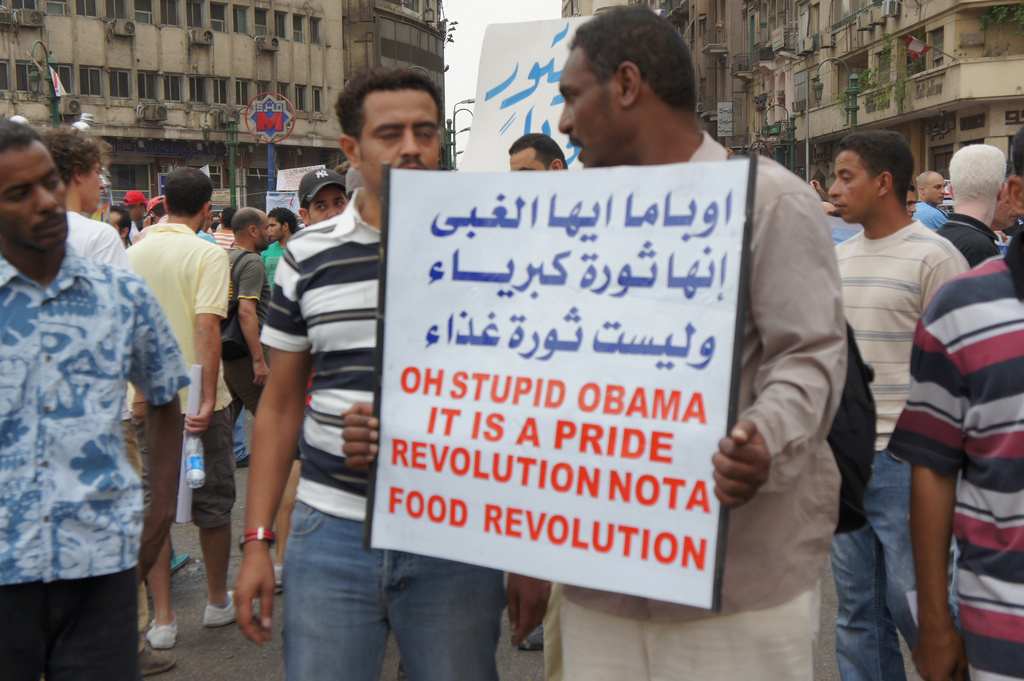
As a reformer, you have written about the battle for the minds of Muslims. What are you doing to combat radical Islam at that level?
I’ve established a center called the International Center for Countering Radicalism, which aims to counter radicalism at the ideological, psychological and behavioral levels. The Center also provides support and encouragement to individuals whom I have identified as active in combating radicalism, in order to foment a wave of anti-radicalism.
One of the products I have just recently produced is a modern interpretation of the Koran that teaches it in a peaceful, non-literal way which can ultimately and hopefully lead to peaceful coexistence and help curb hatred, Anti-Semitism and violence. I have created a Facebook page with hundreds of examples of this modern interpretation, and in ten months it has received over 1.9 million “likes”!
Other projects in the works include a psychological warfare project and a TV advertising campaign throughout the Arab World to combat radicalism at the level of the thinking process – radicals usually think in certain patterns such as absolutism and judgmentalism – not just the ideology.
My final question to you brings us home to the Israeli-Palestinian Peace Process – what is your view of the current tireless US efforts to bring the sides to sign a framework agreement?
The US has been trying to solve this problem for ages, but every time they try, they forget that the real problem from the Arab side is not the issue of Israel’s borders, but rather its mere existence. US efforts will be futile until the day it acknowledges this and tells our Arab counterparts that it can’t do much for them unless they show tangible evidence they are changing their attitude and way of thinking, and accept Israel as a Jewish state in the region.
As long as the US does not pressure the Palestinians to show at least 2-3 years of evidence that they have changed their education and media and accepted the reality of Israel’s existence, as long as the Palestinians still teach their children mathematics by counting the number of Jews killed, all efforts will be in vain. This is the way to go in the negotiations. However, the US always tries to blame the Israelis and equalize the situation as if Israel were the cause of the problem. On a personal note, I hope to one day bring real peace, harmony and understanding between my Egyptian people and the Jewish people in Israel, to create love instead of hatred.
To receive updates on new articles in English, join Mida on Facebook or Twitter or join our mailing list.


